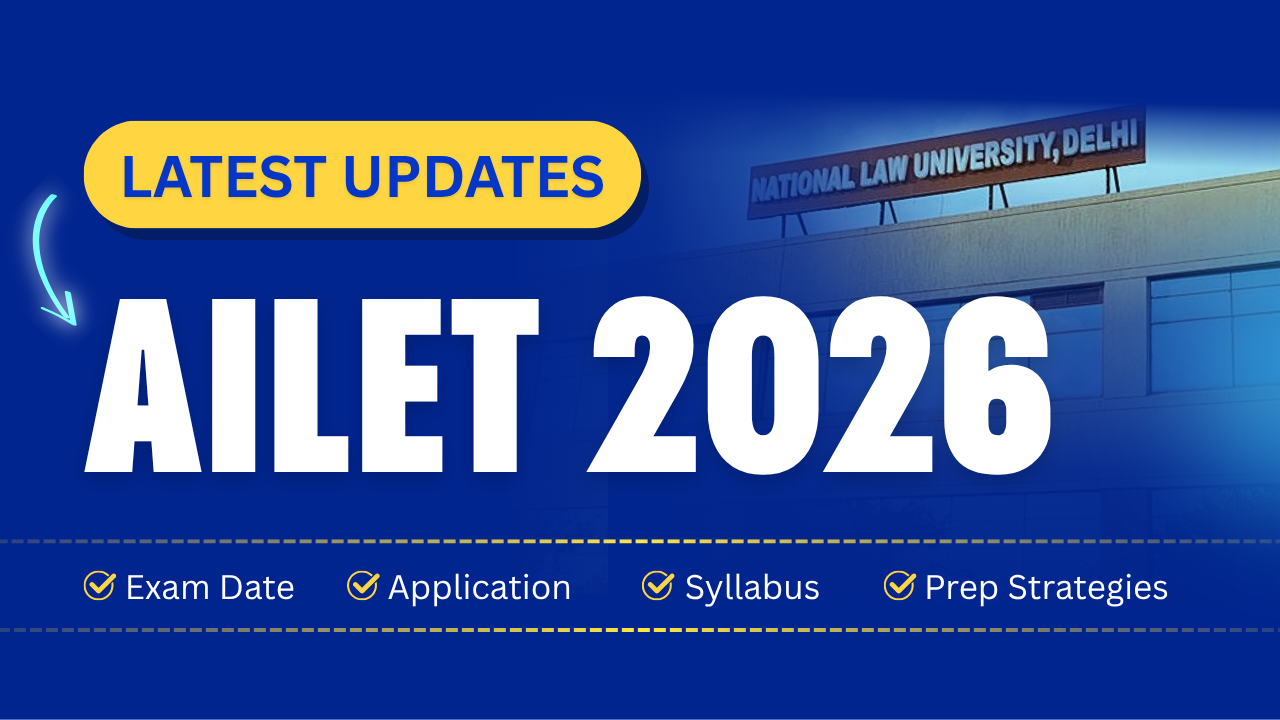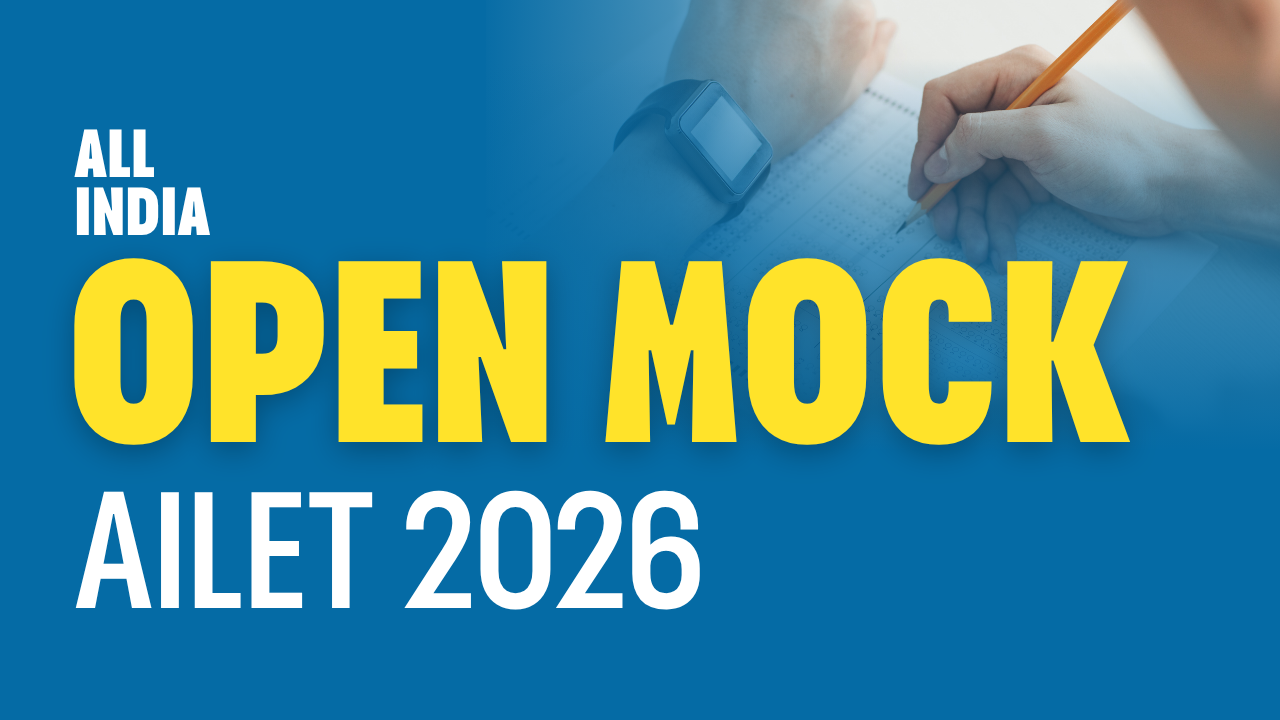By I Apr 02, 2024

Introduction
Reading comprehension stands as a cornerstone in the edifice of the Common Law Admission Test (CLAT) preparation. Given its significant weightage in the exam, mastering this section not only boosts your overall score but also lays a solid foundation for your future legal studies. This comprehensive guide is designed to enhance your reading comprehension efficiency, tailored specifically for CLAT aspirants. By integrating the latest pedagogical insights and strategic approaches, we aim to transform your preparation journey, making you adept at navigating complex passages with ease and confidence.
Understanding the Significance of Reading Comprehension in CLAT
The CLAT exam tests your ability to swiftly understand and critically analyze written material, a skill paramount in the legal profession. Reading comprehension challenges include dense texts, intricate arguments, and nuanced language, reflecting the complexities you'll encounter in legal documents and cases. Excelling in this section requires more than just speed; it demands accuracy, critical thinking, and effective time management.
Strategies to Enhance Reading Comprehension Efficiency
Develop a Reading Habit Begin with cultivating a daily reading habit that goes beyond textbooks and legal material. Dive into a diverse array of genres, including fiction, non-fiction, editorials, and journals. This practice broadens your vocabulary, exposes you to different writing styles, and improves your ability to grasp complex ideas quickly.
Learn to Skim and Scan Skimming (reading quickly to get the gist) and scanning (looking for specific information) are crucial techniques for time management in the CLAT exam. Practice these skills by setting time limits to read articles or passages and summarize their main points or locate specific details. Over time, this will help you navigate through passages more efficiently, allowing more time for analysis and answering questions.
Strengthen Vocabulary A strong vocabulary aids in quickly understanding and interpreting complex texts. Incorporate vocabulary-building activities into your daily routine, such as learning new words, using flashcards, and practicing word games. Understanding root words, prefixes, and suffixes can also provide clues to the meaning of unfamiliar words, reducing the need for frequent dictionary consultations.
Practice Active Reading Active reading involves engaging with the text through questioning, annotating, and summarizing. This approach fosters deeper understanding and retention. As you read, ask questions about the passage's purpose, the author's argument, and the evidence provided. Highlight or note down key points and summaries, which can serve as quick references for answering questions.
Analyze Previous Year Papers Studying previous year CLAT papers offers insights into the types of passages and questions that frequently appear. This analysis can help you identify patterns, common themes, and your areas of strength and weakness. Tailor your reading practice to include similar passages, refining your ability to dissect and comprehend texts under exam conditions.
Take Regular Practice Tests Timed practice tests are invaluable for honing your reading comprehension skills. They simulate the exam environment, helping you manage the pressure of time constraints while maintaining accuracy. After each test, thoroughly review your answers and the explanations for questions you found challenging. This reflection is key to improving both speed and comprehension.
Seek Feedback Regular feedback from mentors, teachers, or study groups can provide new perspectives and strategies for improvement. Discussing passages and questions with peers can also deepen your understanding and expose you to different analytical approaches.
Maintain a Healthy Lifestyle Reading comprehension efficiency can be significantly impacted by your physical and mental well-being. Ensure adequate sleep, regular physical activity, and a balanced diet to keep your mind sharp and focused. Mindfulness practices, such as meditation, can also enhance concentration and reduce exam stress.
Conclusion
Improving efficiency in reading comprehension for the CLAT exam is a gradual process that requires patience, practice, and persistence. By adopting the strategies outlined above, you can enhance your ability to swiftly navigate through complex texts, discern critical information, and analyze passages with greater accuracy and speed. Embrace these practices as part of your daily study routine, and watch as your reading comprehension skills, along with your confidence, reach new heights. Remember, mastering reading comprehension not only prepares you for CLAT but also equips you with a vital skill for your legal career ahead.
FAQs: Enhancing Reading Comprehension for CLAT Exam
Q1: How much time should I dedicate to reading comprehension practice daily? A1: Ideally, dedicate at least one to two hours daily to reading comprehension practice. This time should include reading diverse materials, practicing skimming and scanning, and solving practice passages. Adjust this duration based on your overall preparation schedule and areas of improvement.
Q2: Can reading novels help improve my reading comprehension skills for CLAT? A2: Yes, reading novels can significantly improve your reading comprehension skills. Novels enhance vocabulary, introduce you to complex narrative structures, and develop empathy and understanding of different perspectives. However, balance this with reading non-fiction, newspapers, and journals to expose yourself to a variety of writing styles and topics.
Q3: How do I manage time effectively in the reading comprehension section of the CLAT exam? A3: Time management can be improved through regular practice under timed conditions. Learn to quickly identify the main idea of a passage and use skimming and scanning techniques to find answers without reading every detail. Practice with a timer to get accustomed to the pressure of time constraints.
Q4: Is it beneficial to read legal documents to prepare for the CLAT reading comprehension section? A4: While reading legal documents can familiarize you with legal terminology and complex sentence structures, it should not be the sole focus of your reading comprehension preparation. The CLAT exam tests a wide range of reading skills, so it's important to read broadly.
Q5: How can I improve my vocabulary effectively for the CLAT exam? A5: To improve your vocabulary, engage in daily learning of new words, use them in sentences, and revise regularly. Reading extensively, playing word games, and using flashcards can also be beneficial. Contextual learning, where you learn the meaning of words through their context in sentences, is particularly effective.
Q6: What are some common mistakes to avoid in the reading comprehension section? A6: Common mistakes include spending too much time on difficult passages or questions, overlooking key details, and relying on assumptions rather than information provided in the text. Practice identifying and focusing on relevant information and avoid making inferences that are not supported by the passage.
Q7: How do I analyze and learn from my mistakes in practice tests? A7: After taking a practice test, review each question, focusing on those you got wrong or guessed. Examine why the correct answers are right and understand the reasoning behind them. Look for patterns in the mistakes you make to identify areas for improvement.
Q8: Can practicing mindfulness or meditation help improve my reading comprehension? A8: Yes, mindfulness and meditation can improve concentration, reduce stress, and enhance overall cognitive function, all of which contribute to better reading comprehension. Incorporating these practices into your daily routine can help you maintain focus during extended periods of reading and studying.
Have you tried any of these strategies in your CLAT preparation? Do you have any tips or insights to share on improving reading comprehension? Join the discussion below and share your experiences or questions. Together, let's build a community of learners committed to achieving excellence in the CLAT exam.
For more informative blogs on CLAT 2025, Click Here!



